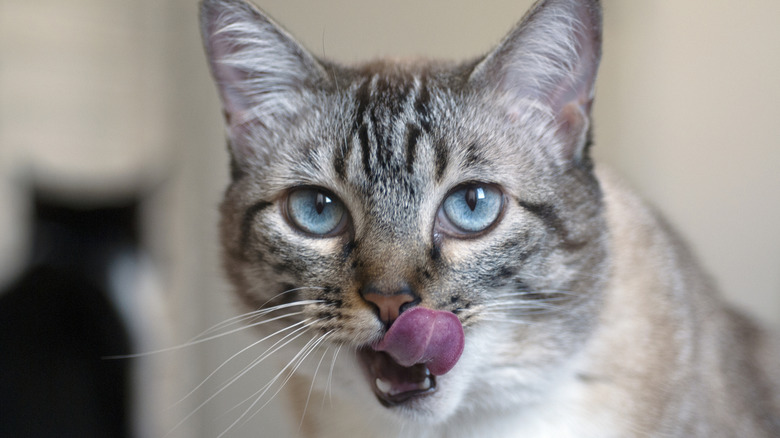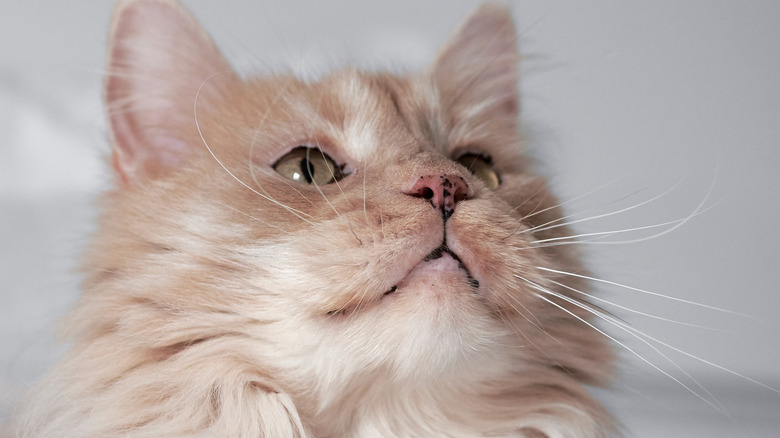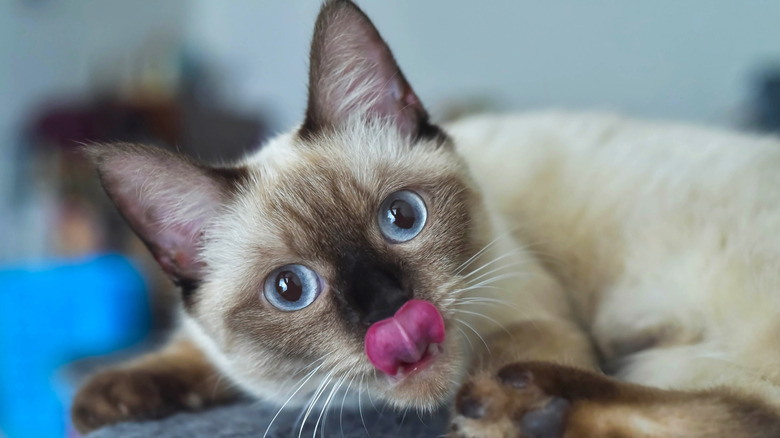What Are The Causes Of Black Tongue In Cats?
Like many other animals, cats use their tongues for reasons that go beyond tasting food. For instance, a cat might lick to show affection, self-soothe, or simply ask for attention. For pet parents, though, a cat's tongue is often a window into their health. Although there can be slight variation to the hue, a healthy cat's tongue will have a bright, pinkish color and a dry, sandpaper-like texture. Anything outside of this, such as a white, blue, black coloration or dark spots is usually a sign you should investigate further.
Although unlikely, one potential cause of a dark tongue is an injury. If your cat happened to climb on your counter and lick a hot surface, like a stovetop, they could have contracted a thermal burn that caused the tissue to turn a different shade. If this is the case, take them to the vet immediately, as severe burns may require surgery.However, if your cat's black tongue isn't the result of a burn, there's a chance it could be due to a genetic or medical condition.
Lentigo
Sometimes, the presence of flat, dark spots indicates there is an infection on your cat's tongue, like stomatitis, or an oral health condition. However, if their mouth doesn't appear swollen and they seem to be behaving normally, they could be dealing with something as benign as lentigo, which refers to a noncancerous cosmetic discoloration on the skin. Although they might look alarming, lentigo spots are not a cause for concern, as they are the result of a genetic condition that occurs spontaneously. They most frequently appear in adult orange male cats who are at least 1-year-old, but may be present in other breeds, too.
Although lentigo is commonly seen on the tongue, it can manifest as flat brown and black spots on your kitty's lips and nose. The good news is they are painless and typically require no treatment. However, if you're concerned, keep an eye on their appearance. Lentigo typically displays as flat spots, so if your cat's tongue has completely changed color or contains raised sores, you'll want to take them to a vet to rule out more serious issues.
Cyanosis
Once you've determined that your cat's black tongue wasn't caused by genetics or injury, it's time to take a closer look at their behavior. If, along with having a discolored tongue, your cat has resorted to open mouth breathing or is coughing, it could be a sign they're dealing with a condition called cyanosis.
Cyanosis typically happens as a result of an underlying respiratory health condition, such as cat asthma, or a cardiovascular problem like a heart defect that results in less oxygen flowing through the bloodstream. This causes the tongue and gums to darken to a blue and black color. Cyanosis is considered a life-threatening medical issue, so if your cat is showing any signs of distress, including restlessness and panting, with their dark tongue, don't wait to take them to the vet. If left untreated, cyanosis can quickly become fatal as the lack of oxygen can cause the body's organs to shut down.


